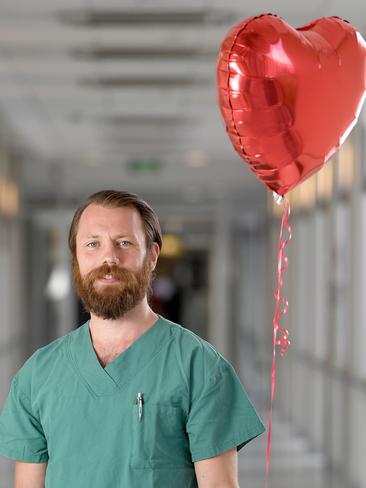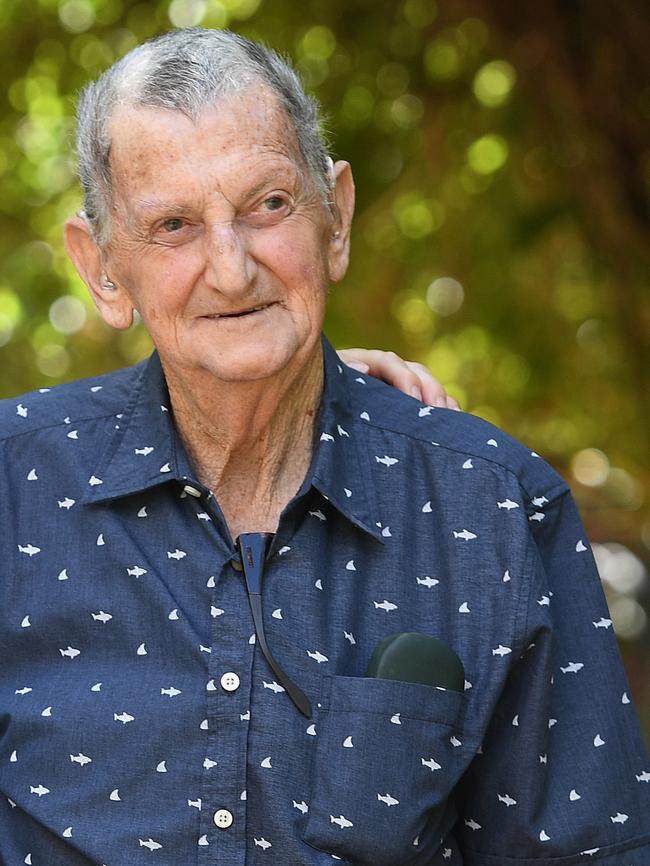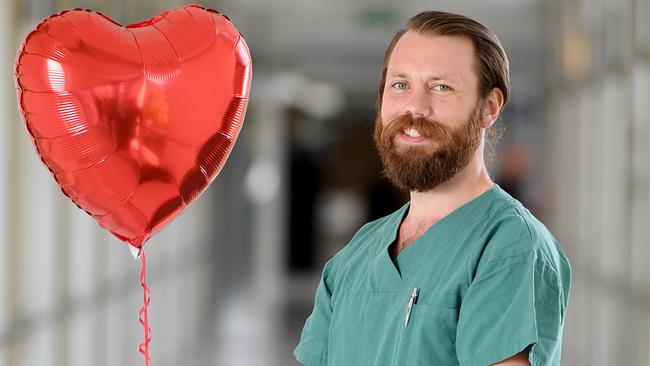MARJORIE Jones had just sat down after giving the eulogy at her brother’s funeral when she felt her heart break.
Not wanting to make a fuss, she waited quietly for a chance to leave, the pain radiating from the middle of her chest, sweat dripping down her back.
Stepping outside, she told husband, Colin, she thought she was having a heart attack even though a recent trip to the cardiologist had found her heart was in good health.
But the doctor she saw that day sent her straight to hospital where, following an ECG and angiogram, she was diagnosed with Takotsubo — or ‘broken heart’ — Syndrome.
“I’m a very strong person, I never thought this would happen to me. I lost a little boy at 15 days old. Colin was at sea and never got to meet him. I’ve had lots of sad moments,’’ says Mrs Jones.
“But my brother and I were the last of my family. The funeral made me think of my own mortality.”
While Mrs Jones, 72, is recovering well since her Australia Day weekend episode, there is still much to be learned about Takotsubo — why some recover easily and others suffer recurrent episodes. Why some die.

I’m a very strong person, I never thought this would happen to me. I’ve had lots of sad moments.
Sven Surikow is a cardiac physiologist and PhD candidate with the University of Adelaide working to better understand and find ways to treat Takotsubo because there is no current established treatment for the syndrome.
“TS can be reasonably difficult to diagnose at times but it appears that more than 90 per cent of cases are in women aged 50 plus years,’’ Surikow says.
“Due to this difficulty in diagnosis, the true incidence is unknown, however in Adelaide alone there are around 100 cases per year. Yes, it can be fatal. Although originally it was thought to be quite a rare and benign condition, it is becoming more recognised as diagnosis becomes better.”
What is known is this: sometimes, in response to acute stress, a surge of adrenaline triggers inflammation in a susceptible heart. There is then a “stunning” of part of the heart’s left ventricle which, when imaged, can present in the shape of a Japanese octopus pot — a ‘tako-tsubo’.

Working in a research team under Professor John Horowitz at the Queen Elizabeth Hospital, Surikow says the name ‘broken heart syndrome’ began as a bit of a pun that the press picked up early on, coming from the fact that there was an association with recent emotional trauma. In practice, this only represents around a quarter of Takotsubo patients.
“The process is not instantaneous,’’ Surikow says.
“The inflammation causes chest pain, then lethargy, which causes people to believe they are having a heart attack. TS can present quite similar to a heart attack, and often this is why it is not diagnosed properly.”
This was the case for Ridgehaven’s Bob Kelly, 79.
He had begun to collapse at home. One minute he would be fine, the next his wife would be leaning over him as he lay on the floor.
He had no chest pain and, as a long-time prostate cancer patient, the episodes were put down to side effects of his treatment.
But Bob and his wife were struggling. They had moved house, gone to stay in a friend’s unit for a while but had to move again when it was put up for sale.

The couple moved three times in two months. The stress built.
“It’s hard when you are a certain age and on the pension. It’s hard to find a place,’’ Kelly says.
“I felt bad because I couldn’t do anything to help as I was so unwell.”
When Bob was eventually diagnosed with Takotsubo the bottom left chamber of his heart had swelled to half the size of an orange.
He has been told there is potential for more episodes.
“There have been studies that show energetic impairment in the heart lasting at least four months, and that some patients are even experiencing symptoms up to a year after the acute attack,’’ Surikow says.
“In hospital death rates are around 3 per cent, so reasonably good. (But) recent Swiss and Swedish studies have shown that patients with TS have higher long-term death rates than the general population.
“We are aiming at developing ways of improving recovery from TS.
“So far we have been part of a few important discoveries — better ways to make the diagnosis, looking at particular enzymes and ECG patterns, which enzyme causes the energetic depletion within the heart, and why the heart swells during acute episodes.”


Add your comment to this story
To join the conversation, please log in. Don't have an account? Register
Join the conversation, you are commenting as Logout
Prawn gel probe spawns hope for back pain breakthrough
EVER battled peeling a prawn and wondered what it is about the shell that makes it so annoying to remove? Adelaide researchers believe a part of the shell that makes it strong but bendy could help ease excruciating pain after back surgery.
Using Netflix, Uber tech to keep flu outbreaks in check
COULD ‘big data’ technology used by Netflix and Uber be the key to getting a grip over influenza outbreaks? A team of Adelaide-based researchers is finding out.